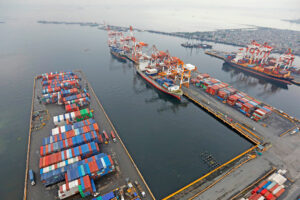THE Department of Agriculture (DA) said on Tuesday that it is seeking to collaborate with the Philippine Ports Authority (PPA) and Bureau of Customs to improve its farm import estimates.
“This would help up improve our supply and price forecasting and avoid artificial shortages caused by product hoarding,” Agriculture Secretary Francisco P. Tiu Laurel, Jr. said in a statement.
He added that the data gathered could determine which importers that need to be blacklisted.
Mr. Laurel said the objective of the tieup is to better time imports of farm goods to optimize the food supply.
The DA said that it is also looking to “ensure that imported agricultural food products are immediately delivered to warehouses and sold on the market.”
Last week, Mr. Laurel said the delay in lowering rice prices was due to bottlenecks at the ports, with imports remaining stalled after being landed.
The PPA has said that about 20,000 metric tons (MT) of imported rice have been unclaimed, noting that consignees could be waiting for the price of rice to rise because their cost of acquisition was high.
President Ferdinand R. Marcos, Jr. signed Executive Order No. 62 in June, lowering the tariff on imported rice to 15% from 35% until 2028, to help lower the price of the grain and blunt its impact on inflation.
Mr. Laurel said that rice prices could begin to ease by mid-October, while its full impact may be felt by January next year.
The DA has said that the lower tariffs on rice would lead to a P5 to P7 per kilogram drop in imported rice prices.
Rice imports totaled 3.09 million MT as of Sept. 19, according to the Bureau of Plant Industry. — Adrian H. Halili
